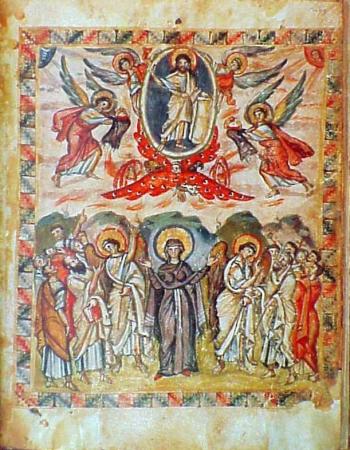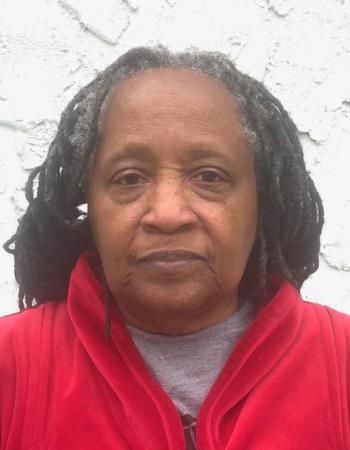
In her vivid description of the COVID pandemic’s brutal effects on the world’s people and societies, especially in India, her home, Arundhati Roy writes in "The pandemic is a portal": "Historically, pandemics have forced humans to break with the past and imagine their world anew. This one is no different. It is a portal, a gateway between one world and the next."
It is a vivid metaphor. Here in New York City we have experienced the loss of many lives. We’ve been isolated in our homes, and the city’s commerce and busy street life, its hustle and bustle, have ground to a halt. Something outside was making us sick, so we stayed indoors, working remotely if we could work at all. Schools were shut and children met their teachers and did their lessons by computer. Many people lost their jobs and their homes. The emotional toll was great , with stress levels aggravating already difficult situations caused by lack of resources and racial tension leading too a soaring murder rate and unprovoked assaults on the elderly, especially Asian people. Still others fled to open spaces, rural retreats.
And now we’re told that with widespread inoculation rates of a successful vaccine it is safe to go outside. Slowly schools and businesses are opening. Churches, museums, restaurants and live performance venues are opening their doors. The end is in sight. But what will the return to civic life look like? How will we know if it’s really safe? Are we prepared to re- enter society, to cross the portals of our homes to a reconstituted city life?
The situation reminded me of the disciples after the Crucifixion, sheltering together behind closed doors in fear of the officials who had executed Jesus. Jesus’s followers had run away from the bloody scene of torture and death, with only the women and the Beloved Disciple bearing witness to his final hours. Afterwards he came to them just as the women said he would, talking to them, showing his wounds, assuring them that he had indeed risen from death. And then he went with them to Mt Olive and ascended into Heaven, promising to send the Holy Spirit, the Comforter, to stay among them.
How could he leave them again? What could they do now? Nothing had changed. They were still in danger and greatly distressed by their teacher’s violent end. We celebrate the Ascension for the joy of knowing that Jesus is with the Father, he has gone to prepare a place for us. He has crossed the portal from Earth to Heaven bringing humanity back to God’s domain. John Chrysostom writes: "At this feast of the Master, the day of the Ascension, the devil is wailing, as we said, while the faithful are joyful. Now has the joyous spring dawned, and the beauty of flowers blossomed. The branches of vines are pruned, the olive trees give their sweet fragrance, the fig trees give their immature fruit, and the wind blows rustling the leaves, mimicking the dancing of the waves: all things rejoice with us at the ascension of the Master. Bring, therefore, with us the words of David, that we might rightly cry out to the Master Who has ascended: “Let all the nations clap their hands, crying to God with a voice of rejoicing. The Lord ascends with the sound of the trumpet, to where He was.” He ascends, but is not separated. For he who descended, has ascended above the heavens."
But was that clear to his friends and family? They didn’t truly understand all that had happened, what Jesus meant by his teachings of God’s kingdom on earth. At the time they must have felt what the hymn describes in today’s liturgy: "Lord, when Your Apostles saw You carried up upon the clouds, / they were filled with despondency, O Christ the Giver of life: /with wailing and tears they lamented and said: / “Master, do not leave as orphans, / us Your servants whom through pity You have loved in Your compassion; / but, as You promised, send us Your all-holy Spirit // to enlighten our souls!”
The angels told them, "Men of Galilee,” they said, “why do you stand here looking into the sky? This same Jesus, who has been taken from you into heaven, will come back in the same way you have seen him go into heaven.” (Acts 1:11)
But it must have been overwhelming. The icons show us a scene of frenzy and turmoil. Jesus rises as the angels’ wings flutter, their robes flapping in the rush of air, cherubim and seraphim rushing him into Heaven. And the disciples seem torn by indecision and dismay, looking up at the sky, some pointing towards Heaven, all alert, standing tall , but their heads twisted at awkward angles , their expressions astonished. The angels gesture towards the rising Jesus with the heavenly hosts and address the disciples who are standing around them. Only the Theotokos seems calm, assured, facing out at us with her arms in a praying Orans position.
Then the disciples go back to their room to pray together and talk and plan and wonder. It is when the Holy Spirit descends on them in a rush of wind with tongues of fire that they have the energy and motivation to go out in the world, to form a new community, sharing resources and spreading the Word. They are still in Jerusalem but they have been transformed and they go about spreading the Word and changing the world, bringing God’s Kingdom to us.
What are we waiting for? Many of us still stay close to home, reluctant to return to jobs that maybe weren’t that great to begin with, to business and personal relationships that were difficult and unresolved. Maybe we’ve come to treasure the time alone, or grown reluctant to face the challenges we know await us. Things weren’t all that great when we left. When will we be ready to go back? We are not the same as we were before. We’ve had time to think and reflect on our lives. Like the disciples, we’ve had time to consider and absorb the teachings of Jesus and our spiritual guides. We’ve had time to review the troubles that plagued our society, not only infectious viruses but brutal and unhealthy policies and actions. What will it take for us to stop looking up for solutions from higher authorities or institutions? Will we need another Pentecost event to propel us out the door to change the world, to make our society a better place? To do the work that needs to be done to make change? What will it take to walk through that portal, across our thresholds and into the world?
Ms Roy concludes her essay with these words: "We can choose to walk through it, dragging the carcasses of our prejudice and hatred, our avarice, our data banks and dead ideas, our dead rivers and smoky skies behind us. Or we can walk through lightly, with little luggage, ready to imagine another world. And ready to fight for it."
Judith Scott blogs regularly for Axia.



